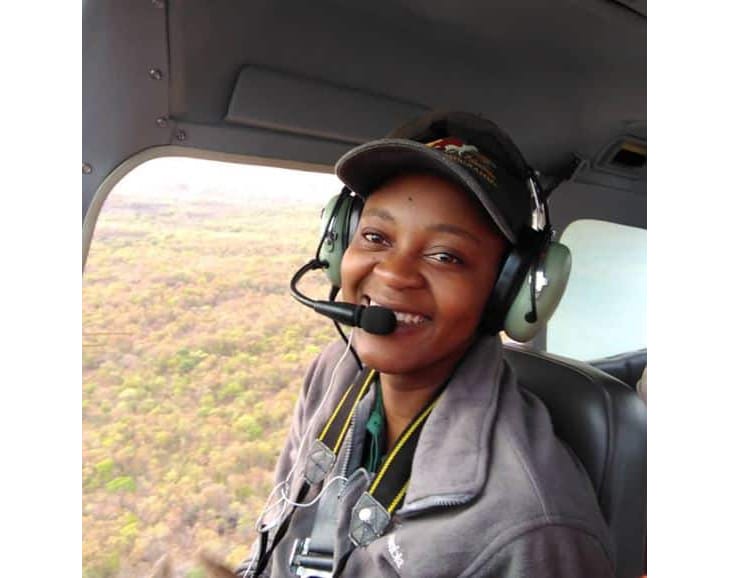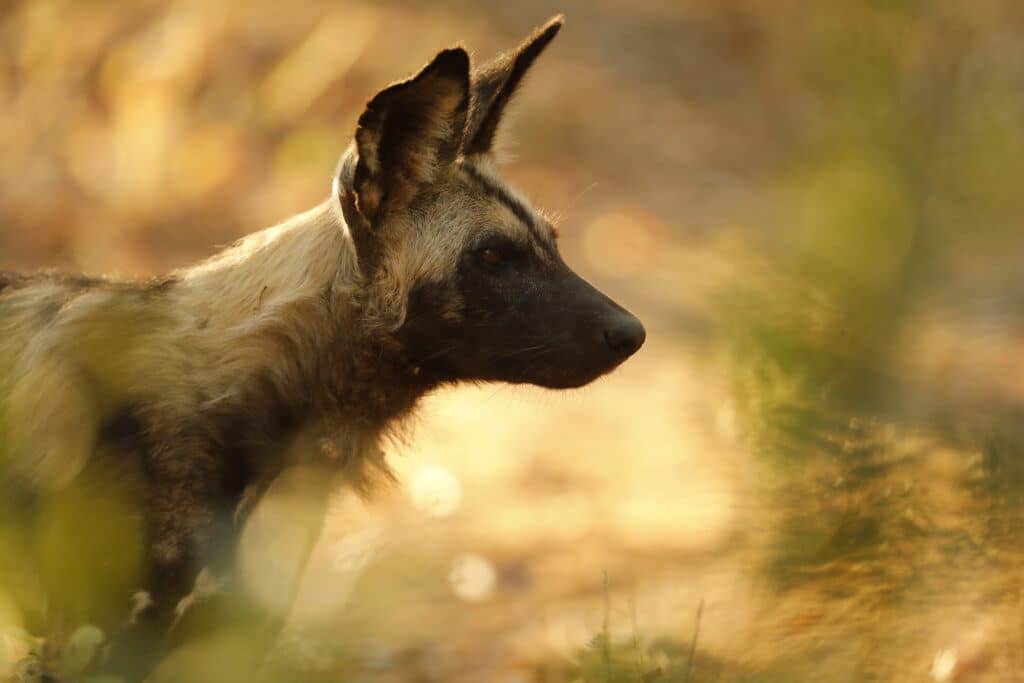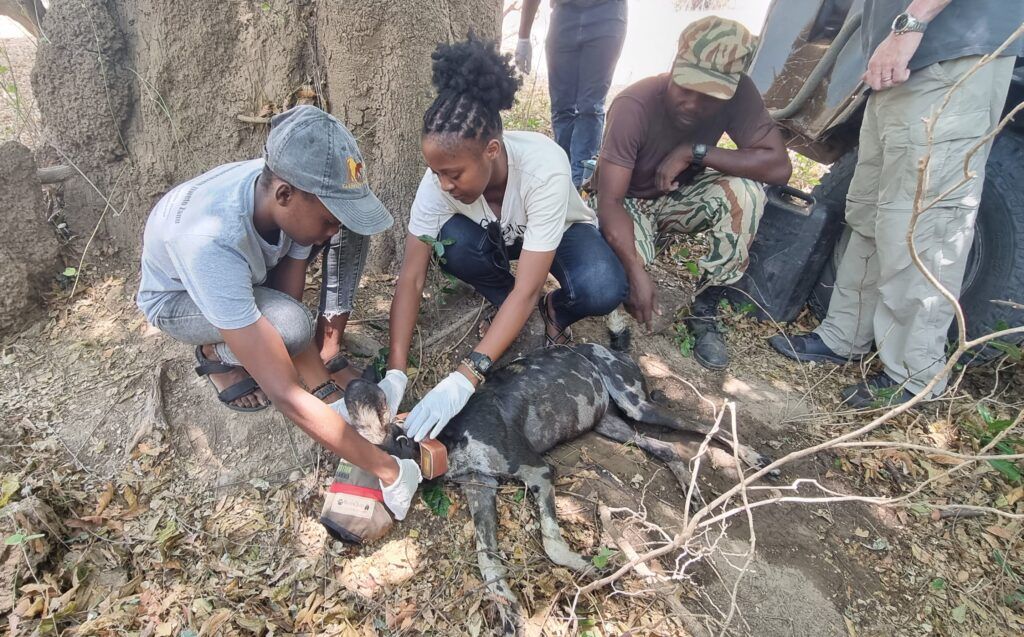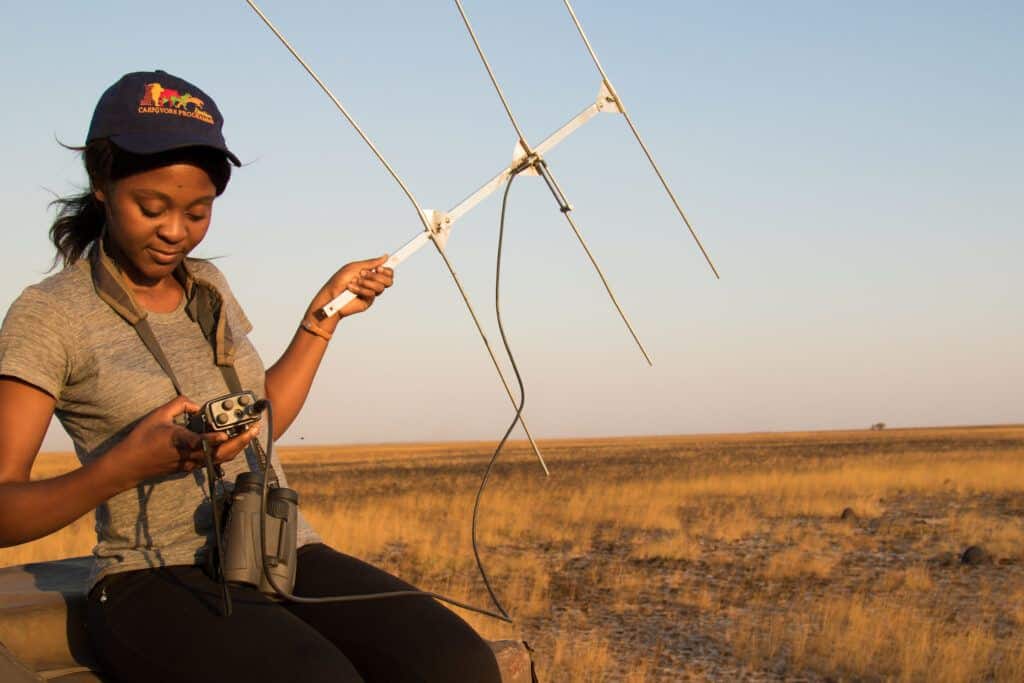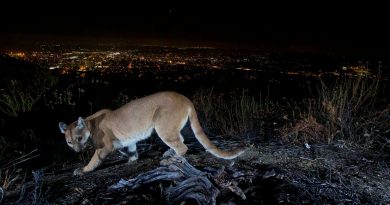A Dream of Tomorrow’s Leaders
Holding her camera tightly, Bridget Mayani peered out of the plane’s open door toward the ground below. The Luangwa River shimmered in the late morning sun, and along its sandy bank, she spied a pack of painted dogs taking a drink. Luangwa Valley is home to many of these endangered canines, and as a Senior Field Ecologist for the Zambian Carnivore Programme (ZCP), Bridget spends most of her time monitoring predators from trucks or aircraft. This is her dream job, and her participation in WCN’s Career Program has given her the resources and support to take her career to new heights for the betterment of Zambia’s carnivores.
Growing up, Bridget didn’t know that wildlife conservation was a career option in Zambia. She loved learning about nature, but there was a lack of local mentors to emulate. She eventually found those role models at ZCP, who gave her the opportunity to study painted dogs, lions, hyenas, and leopards. Bridget was accepted into WCN’s Career Program in 2021 as part of its first cohort of rising wildlife leaders. This program supports the professional growth of conservationists who live in the regions where they work so they can continue to be leading voices shaping the future of conservation in their home countries. Through the Career Program, Bridget receives financial support for additional education, access to additional mentorship opportunities, and training in project management, proposal writing, and fundraising.
Every day, Bridget heads to the field before sunrise while carnivores are still active, gathering behavioral data about important predator populations across South Luangwa National Park. ZCP operates Zambia’s longest running carnivore conservation program, and Bridget’s research helps ZCP protect fragile wildlife populations and foster coexistence with the communities living alongside them. In addition to monitoring pack and pride health, she also creates carnivore distribution maps, removes poaching snares, immobilizes carnivores for radio collaring, and tracks their movements via radio telemetry. With roughly 21 painted dog packs and 20 lion prides in this region, Bridget’s long-term monitoring is vital to informing conservation management policies and addressing immediate threats to these species.
Bridget dreams of not just excelling as a conservationist, but also paving the way for other young people eager to protect wildlife. Career Program support allowed Bridget to become what she longed for in her youth—a mentor for Zambia’s next generation of budding conservationists. She developed an Integrated Field Conservation Course that gives students hands-on experience collaring carnivores, tracking their movements, making distribution maps from GPS coordinates, and practicing conflict reduction techniques. Six students have received in-depth field training so far; another 100 students have taken the introductory portion of her course, many of whom dream of following in Bridget’s footsteps and working with ZCP.
Snapping another shot of the pack by the river, Bridget couldn’t wait to share these new photos with her students. She is proud to be a part of Zambia’s new generation of wildlife leaders, helping her country become a model for locally-led conservation. With support from WCN’s Career Program, Bridget will continue pursuing her dreams and encouraging that same passion in the hearts of her students.


